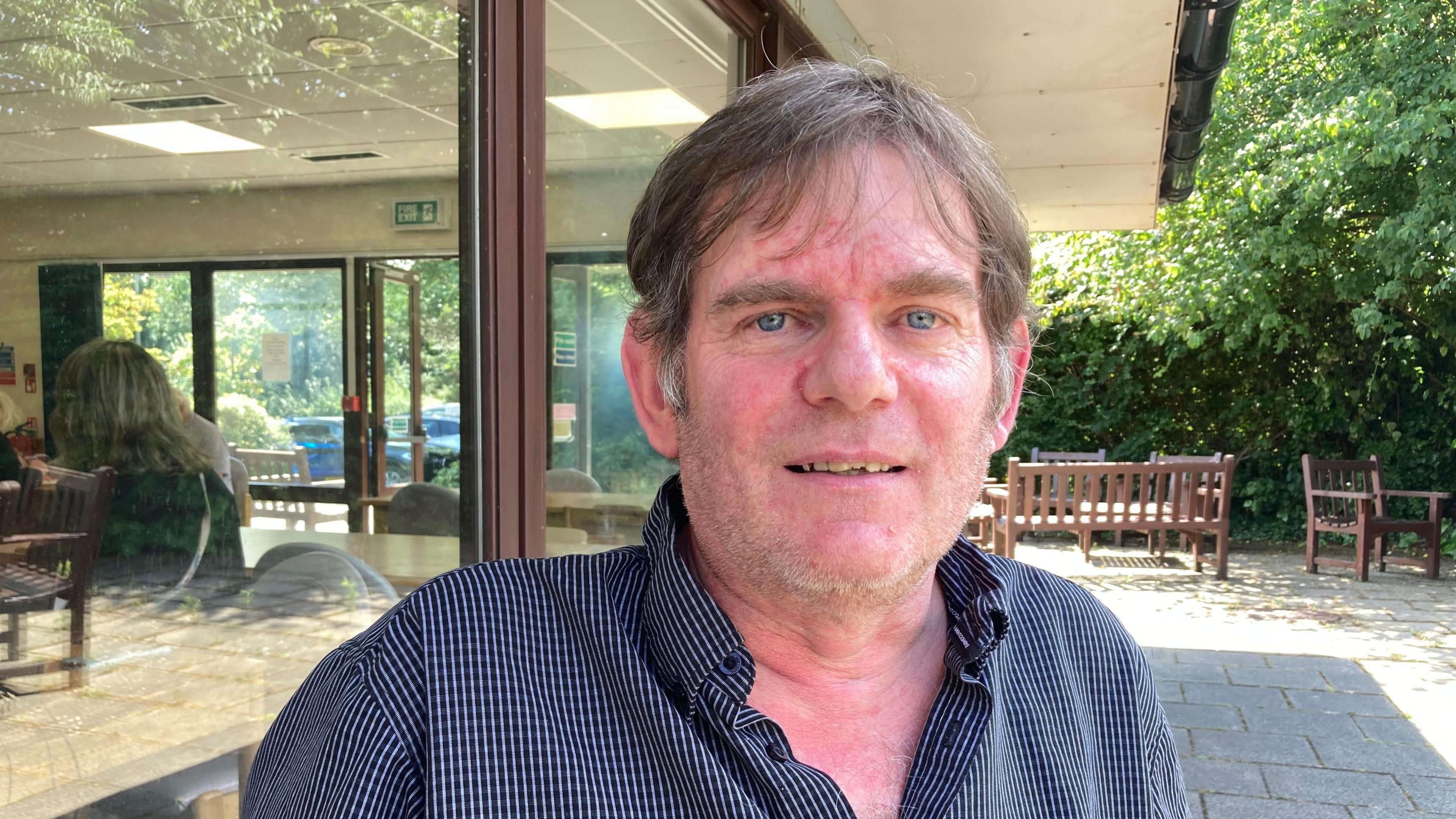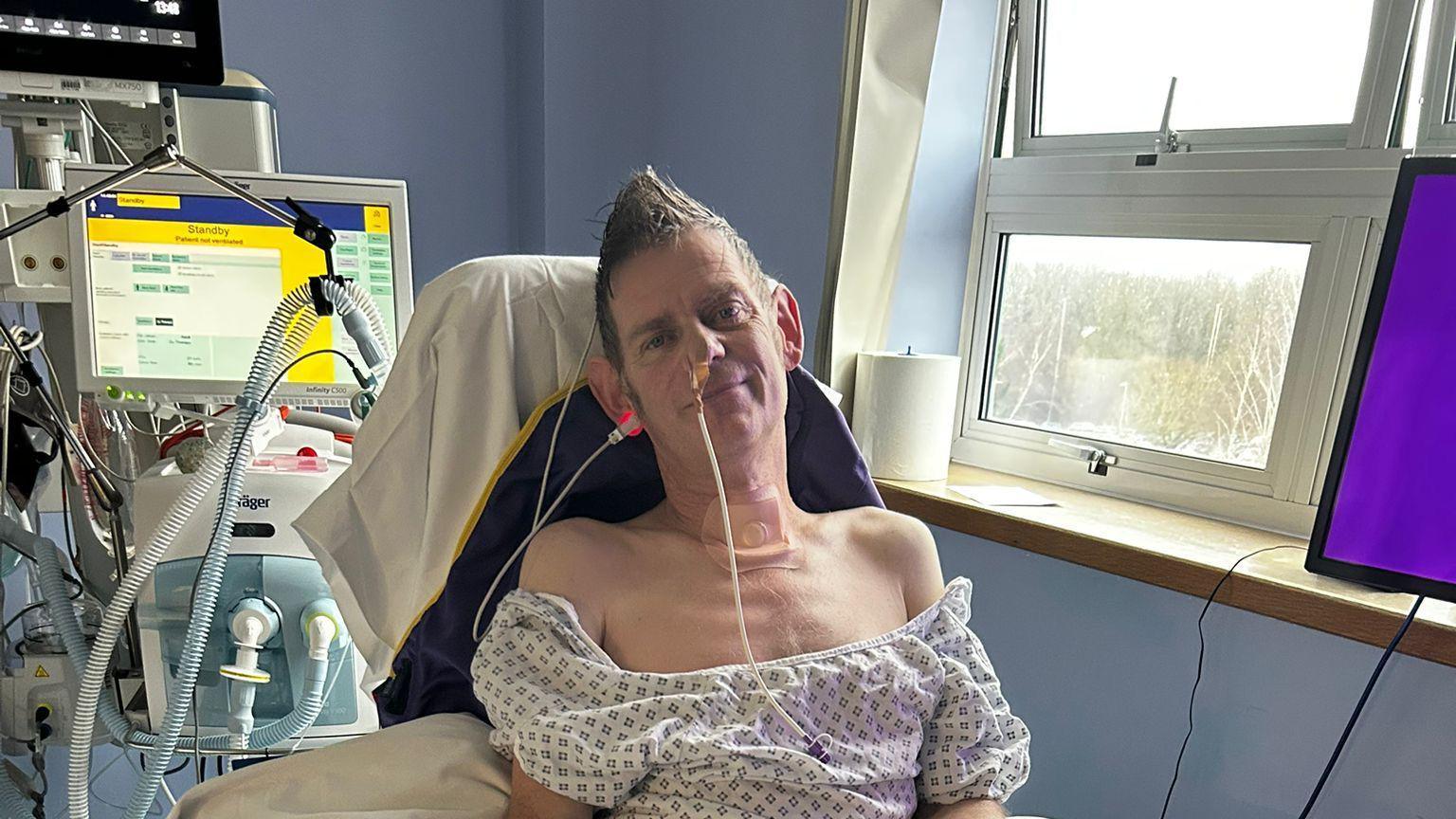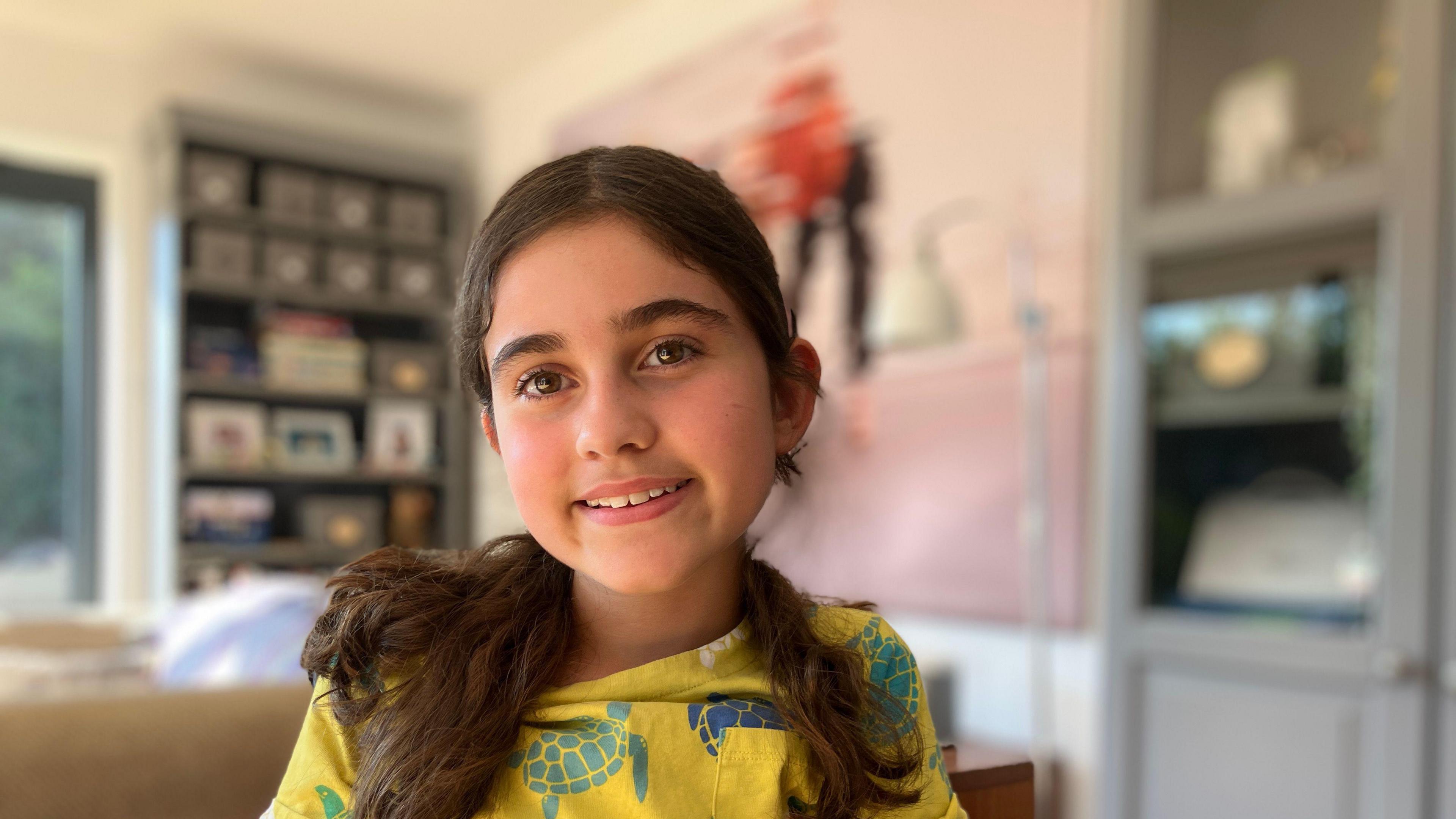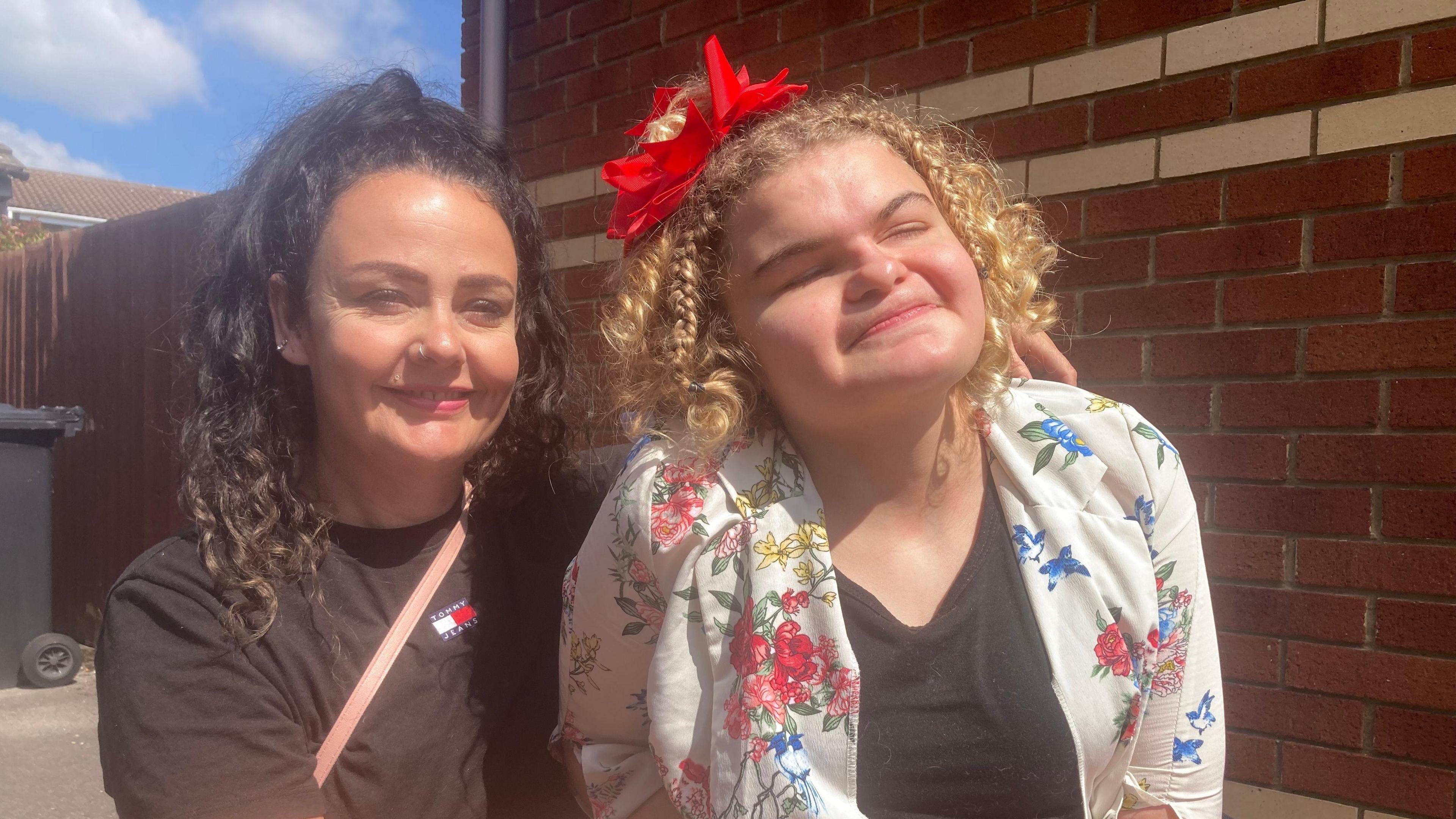Patient left to 'waste away' on wrong hospital ward

Kevin Heard developed a rare condition called Guillain-Barré syndrome
- Published
An engineer says he was "left to waste away" after he developed a rare medical condition that has left him in hospital for more than 200 days.
Kevin Heard, 56, said he developed Guillain-Barré syndrome, an autoimmune condition, after he carried on working despite a bad case of flu. He now uses a wheelchair and is currently unable to write.
Mr Heard, from Sutton Benger in Wiltshire, claimed he was placed on the wrong ward, which hindered his recovery, but hopes to raise awareness of the illness which affects 1,300 people in the UK every year.
Luisa Goddard, chief nurse at Great Western Hospital, said she was "sorry that Mr Heard's experience did not reflect the standards we strive to uphold".
Mr Heard, who was previously healthy, said that his recovery had not been aided by being placed on a respiratory ward, when he should have been on a neurology ward, which prevented him from receiving necessary physiotherapy.
He said: "There is another side to my battle with my recovery that is to do with the NHS and how I've been treated. I was put on an incorrect ward and left to waste away."
Ms Goddard said that when their neurology beds are full, "patients may need to be cared for in other parts of the hospital".
She said: "Following Mr Heard's feedback, we have taken steps to review and improve our approach to patients who need enhanced care and specialist support for complex conditions such as Guillain-Barre syndrome.
"We are also placing a renewed focus on preventing deconditioning and ensuring patients remain active and independent during their hospital stay through additional training, regular monitoring and meaningful activities for patients."
Mr Heard now hopes to be able to leave Chippenham Community Hospital by the end of August.
He said his illness began with a persistent cold and cough last summer.
"I then got the flu, but I carried on working," he said.
"By the middle of November, my left leg was starting to lose power, and my left hand side of my body had started to give problems, so I thought I was having a stroke.
"I admitted myself into Great Western Hospital [in Swindon]. Eighteen hours and 32 doctors later, I was diagnosed with Guillain-Barré syndrome."

Mr Heard hopes to be able to leave hospital this summer
At one point, Mr Heard was put in an induced coma for two days, to give his lungs a rest and received five rounds of plasma infusions.
Although his symptoms are now improving, Mr Heard said it had been a "long and slow process" to get where he is today.
He still struggles to feed himself and has had to relearn how to walk.
"Every day is a learning day to overcome the problems with this debilitating illness," he said.
"All of my nerves are functioning. They've all got their coating back.
"I'm now standing for at least a minute (at a time), but I'd never have thought this time last year that I'd be learning to walk for the second time in my life."
He hopes to be able to walk out of the hospital with a frame by the end of August and to be able to return to work, but not "for at least a year" to allow his body to "build fatigue resilience".
He does not know if he will ever fully recover – and advises those who feel unusually ill to seek medical help.
The decision not to rest while feeling ill, he said, may have contributed to his need to spend months in hospital.
"Don't be a martyr. Have some rest, because not all of us are very good at doing that".
What is Guillain-Barre syndrome?
It is a very rare and serious condition which affects the nerves.
It mainly affects the feet, hands and limbs, causing problems such as numbness, weakness and pain.
The symptoms include numbness and pins and needles starting in the feet and hands before spreading to the arms and legs. You can also have muscle weakness, pain and problems with balance and co-ordination. In severe cases, you may have difficulty moving, walking, breathing and swallowing.
About one in 20 cases is fatal.
It can be triggered by an infection, in extremely rare cases a vaccination, surgery, a medical procedure or an injury
Some people will not make a full recovery and are left with long-term problems such as being unable to walk without assistance, weakness in the arms, legs or face, numbness, pain or a tingling or burning sensation, balance and co-ordination problems and extreme tiredness.
Source: NHS UK, external
Get in touch
Tell us which stories we should cover in Wiltshire
Follow BBC Wiltshire on Facebook, external, X, external and Instagram, external. Send your story ideas to us on email or via WhatsApp on 0800 313 4630.
Related topics
- Published19 June

- Published26 June
